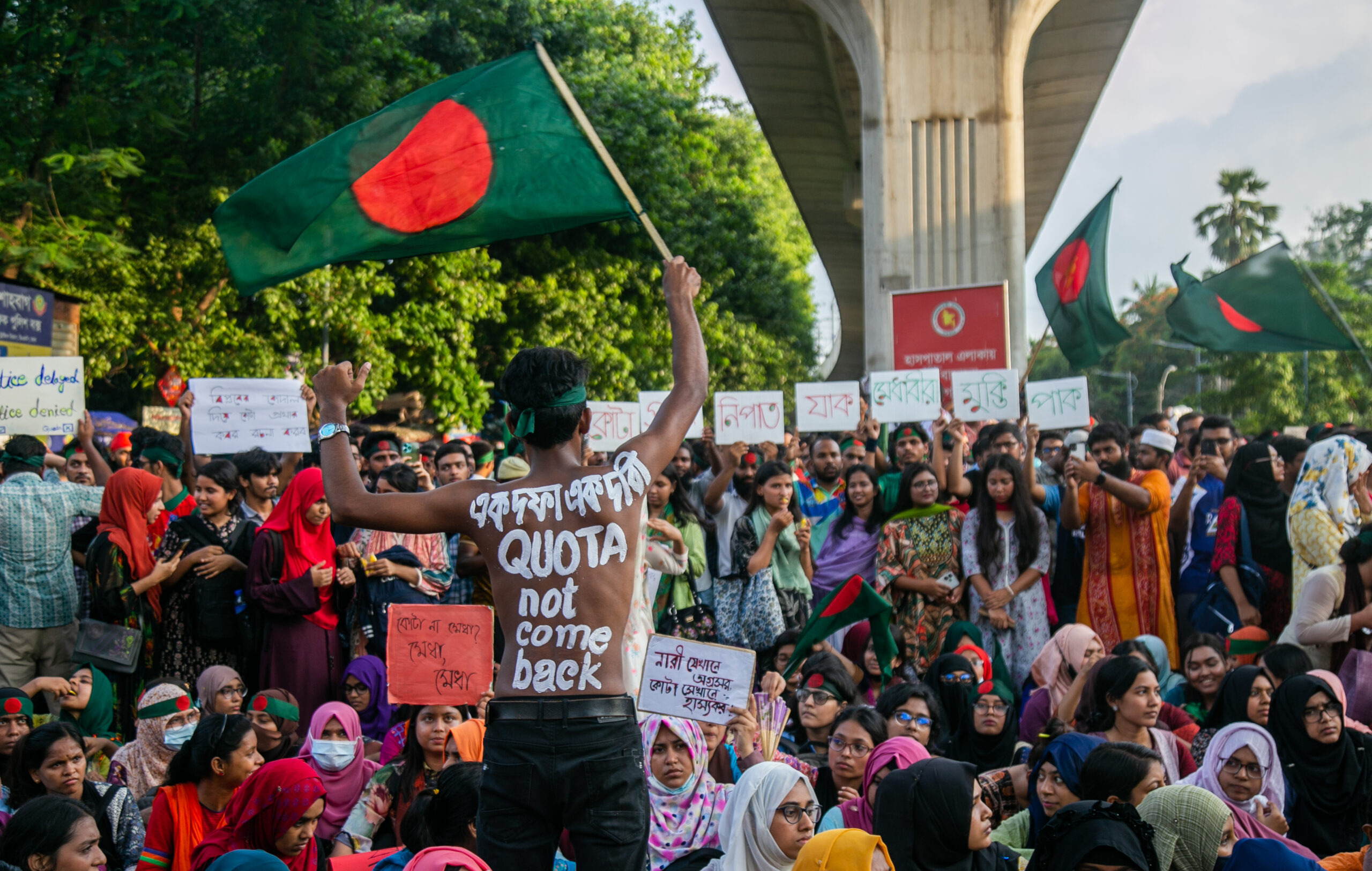“God helps those who help themselves,” a timeless saying that holds true in light of the recent two-month-long protests in Bangladesh against Prime Minister Sheikh Hasina. Doom was on the horizon, but only those who took a stand, bled and sweated for their cause, have tasted victory. As the saying goes, “No pain, no gain,” and the students of Bangladesh have proven that those who dare to challenge the status quo will ultimately reap the rewards.
In a dramatic turn of events, Bangladesh’s Prime Minister Sheikh Hasina – the hardline leader of the Awami League party and daughter of the late Sheikh Mujeeb ur Rahman – finally threw in the towel after 15 years of rule and fled the country . The protests reached a boiling point in Dhaka. The protests, which began in late July, were sparked by the state’s controversial quota system and had been simmering for two months, leaving around 300 people dead. When the students refused to back down, their movement gained momentum and eventually forced Shiekh Hasina into action, a testament to the power of grassroots activism and the unwavering resolve of a generation demanding change.
In a televised address to the nation, the army general announced that an interim government would take control of the country and ensure a peaceful transition. The decision came after the military backed student protests against the controversial government quota system, which has long been a point of contention. The student movement, which had gained widespread support, had branded Prime Minister Sheikh Hasina a “dictator” because her government was perceived as authoritarian and refused to reform the quota system.
The fall of Sheikh Hasina is a stark warning: “Power lies with the people, not the politicians!”; Bangladesh’s courageous protesters have sent a clear message: no future leader will be tolerated as a dictator.The era of authoritarian rule is over; the era of accountability has begun!
According to a report in the Times of India, intelligence agencies have found evidence suggesting that Pakistan’s foreign service ISI played a major role in fuelling the protests in Bangladesh. The involvement of ‘Islami Chhatra Shibirand’ (ICS), the student wing of the hardline Jamaat-i-Islami party, is no secret: they have a history of anti-India sentiments and are known to stir up unrest in Bangladesh. Months before the protests, ICS members made painstaking efforts to lay the foundation and eventually forced Sheikh Hasina to flee the country amid nationwide protests. The painstaking efforts of the ISI-backed Jamaat-i-Islami bore fruit, culminating in the toppling of Sheikh Hasina’s long-standing government.
The protests that erupted on July 18 were sparked by the government’s rigid quota system, which had long been a point of contention. Introduced shortly after Bangladesh’s independence in 1971, the system reserved a whopping 56% of public sector jobs for various groups, while leaving only 44% for merit-based candidates. The quota system was a complex web of reservations, with 30% reserved for “freedom fighters,” 10% for women, 10% for zilla quotas (backward districts), 5% for ethnic minorities, and 1% for people with disabilities. The students leading the protests were outraged at the system, arguing that it perpetuates inequality and stifles competition. Despite the government’s forceful response, which included curfews, internet shutdowns, and school closures, protesters refused to back down. The movement gained momentum and students demanded a level playing field and an end to the quota system. The protests had deadly consequences: up to 300 people died and more than 2,500 were injured. However, the students’ determination and resilience finally paid off when they succeeded in toppling the long-standing government of Prime Minister Sheikh Hasina.
The courageous students of Bangladesh have sent a clear message to the world: even the most entrenched authoritarian regimes can be overthrown when people come together and stand up for their rights. Their courageous protests are a beacon of hope for all who fear speaking truth to power. This pivotal moment in Bangladesh’s history is a stark reminder that meaningful protests can be a powerful catalyst for change. The students’ unwavering determination and unwavering passion have shown that even the darkest clouds of oppression can be dispelled when people come together to demand a better future. The overthrow of Sheikh Hasina’s government is a testament to the power of unity and a clear call to action for all those suffering under the yoke of dictatorship. As the people of Bangladesh celebrate their hard-won victory, it is a powerful reminder that students can be the spark that ignites a revolution and brings light to the darkest corners of oppression.
Disclaimer: The views and opinions expressed in this article are those of the author and do not necessarily reflect the official policy or position of The Global Dynamic or its editorial team.

